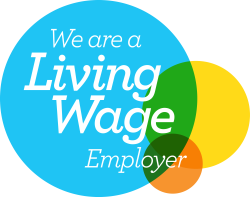
Cambridge Analytica and Facebook: is your data safe?
Cambridge Analytica has made what was probably a rather unwelcome transition from being a niche player to being one of the most (in)famous brand names around. Facebook, meanwhile, has long been controversial from a data protection/privacy perspective and, while some of the stories circulating the internet about it are known spoofs. It is fair to say that Facebook has not always helped its own case when it comes to getting people to trust it with their data.
At the same time, Facebook is run on a very commercial basis and the people in charge will be only too well aware of the fact that their entire business is based on trust and that there are plenty of competitors ready, willing and waiting to pounce if Facebook loses that trust. Over the years, it has worked to try to improve confidence by improving its approach to data protection and privacy and can be expected to redouble its efforts after this scandal.
The key facts of the story in brief
Former Cambridge Analytica employee Christopher Wylie has claimed that Cambridge Analytica covertly gathered user data from Facebook without the permission of those users. Former Facebook employee Sandy Parakilas has said that he warned Facebook executives that they were setting themselves up for a fall due to their lax approach to security and, in particular, to controlling and, where necessary, restricting, the abilities of third-party apps on their site.
Facebook itself denies that the security on its site was breached, it says that the data gathered was collected with permission and that they had permission to share it with Aleksandre Kogan, who is both an academic and the owner of a company called Global Science Research. According to Facebook, it was Kogan who shared the data with Cambridge Analytica, and he did so in breach of his licensing agreement.
Facebook and the question of permission
The data-harvesting operation occurred in 2014 and made use of the fact that, at that time, Facebook apps could ask users for permission to access not only the user’s data but also their friends’ data.
Interestingly, around the middle of 2014, Facebook decided to place restrictions on the data your friends could share about you. They rolled out a change to app permissions in 2015, with the result that by the start of 2016 all apps on Facebook were working under the updated rules.
Having said that, Facebook did not completely ban users from sharing data about their friends and, unless you specifically opt out, there is still quite a lot of information your friends can share about you.
Opting out of social sharing
Lots of people are keen to make their Facebook data far more secure, and there are ways that that can be done. If you head to Settings>Apps and then scroll down the page, you’ll see a box marked Apps others use, with an Edit button. Click on that and the options (currently) are:
- Bio
- Birthday
- Home Town
- Family and relationships
- Current location
- Interested in
- Education and work
- Posts on my Timeline
- Religious and political views
- Activities, interests, things I like
- My website
- My app activity
- If I’m online.
Anything that’s ticked can be shared, so untick anything you do not want to be made public.



